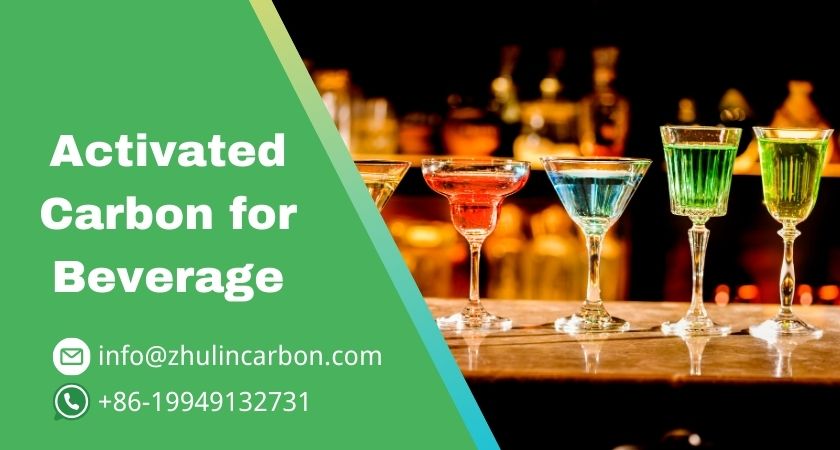
What is activated carbon in the beverage industry?
Activated carbon plays an important role in water treatment applications in the beverage industry, mainly removing harmful substances and impurities from water through its strong adsorption capacity.Organic pollutants removal
The quality of water used in the production of food and beverages directly affects the quality and safety of the products. Activated carbon can effectively remove organic pollutants in water, such as pesticide residues, industrial chemicals, natural organic matter, etc. These organic pollutants may affect the taste, color and safety of food and beverages.Chlorine and byproducts removal
In tap water treatment, chlorine is widely used for disinfection, but its residues and byproducts (such as trihalomethanes) may be harmful to health. Activated carbon effectively removes free chlorine and harmful byproducts in water through surface adsorption and catalytic reduction, providing a safer water source for food and beverage production and avoiding the impact of chlorine on product flavor.Odor & odor sources removal
In drinking water treatment, activated carbon is widely used to remove odor and odor sources in water. This is especially important for the production of food and beverages, because the odor in water will directly affect the taste and flavor of the final product. Activated carbon can effectively adsorb chlorine, phenolic compounds and other odor-causing substances in water.Pigments removal
In the production process of some beverages (such as beer and juice), some unwanted pigments may need to be removed to ensure the transparency and aesthetics of the product. Activated carbon can absorb these pigment molecules, making the beverage color purer and in line with consumer expectations.Heavy metals removal
Although activated carbon is mainly known for removing organic matter, it can also absorb some heavy metal ions such as lead, mercury, chromium, etc. This is also crucial to ensure the safety of food and beverages, especially in areas where water sources may be contaminated by heavy metals.Improve the taste and smell of water quality
The taste of water is crucial to the final quality of beverages and foods. Activated carbon can absorb substances in water that cause odor and taste, including sulfides, phenolic compounds and other organic substances. With the activated carbon treatment, the water quality is purified and the taste is more refreshing and pure, which meets the high requirements of food and beverage companies for water quality.How to choose activated carbon for beverage?

High surface area and developed pore structure
Activated carbons for food and beverage water usually have high surface area (>1000 m²/g) and rich microporous structure, which enables them to efficiently adsorb various trace pollutants in a short time. In addition, these activated carbons undergo strict production control to ensure that their impurity content is low and avoid the introduction of new pollutants during the treatment process.Acid-washed activated carbon and steam activation process
In food-grade water treatment, acid-washed activated carbon is often chosen. This activated carbon can effectively remove metal ions and improve adsorption purity. The steam activation process can further improve the development of the pore structure, thereby increasing its removal efficiency for trace organic matter and dissolved pollutants.Granular and powdered activated carbon

Depending on the specific application scenario, different forms of activated carbon have their own advantages. Granular activated carbon (GAC) is suitable for continuous flow water treatment systems and has a long service life and regeneration ability. For example, coconut shell activated carbon is often used in high-quality drinking water treatment due to its high hardness and adsorption capacity.
Powdered activated carbon (PAC) is suitable for processes that require rapid processing, such as removing odors and pigments in a short period of time. PAC has a small particle size and a fast adsorption rate, but requires subsequent solid-liquid separation.
Conclusion
Activated carbon plays an irreplaceable role in water treatment in the food and beverage industry. By removing harmful substances, odors and pigments from water, activated carbon can significantly improve water quality, thereby ensuring the quality and safety of food and beverages. When selecting and using activated carbon, it is necessary to select the appropriate type according to specific needs and perform regular maintenance and replacement to ensure the best treatment effect.As a professional activated carbon manufacturer, Zhulin not only provide high-quality products, but are also committed to customizing optimal water treatment solutions for customers. Whether it is removing trace organic matter, improving water quality and taste, or improving overall water treatment efficiency, our activated carbon plays an irreplaceable role in the food and beverage industry.

